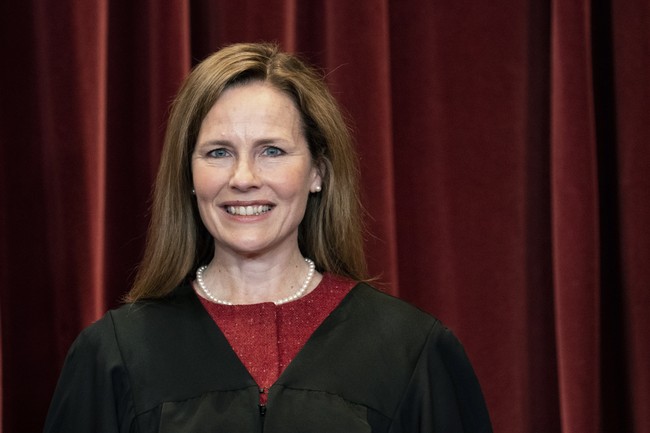
On Friday, in a 6-3 decision, the Supreme Court ruled in favor of January 6 defendant Joseph Fischer, who challenged the novel use of the Justice Department’s Obstruction of Congress charge. So-called conservative justice and Trump appointee Amy Coney Barrett wrote the dissent and was joined by two liberals on the court, Justices Elena Kagan and Sonia Sotomayor.
The case and subsequent ruling have been covered extensively at RedState.
Fischer was argued before the Supreme Court in April; I wrote:
At the heart of the legal debate is the interpretation of the law’s provisions. The 2002 legislation intended to address a gap in federal law that criminalized persuading others to destroy records relevant to investigations or official proceedings but did not address the individual themselves destroying such evidence.
The law has a two-part provision, and Fischer’s lawyers argue that the first part of the statute must inform the second part, meaning that, in their view, the alleged obstruction must be linked to destroying records or evidence.
The first part of the law criminalizes the act of corruptly altering, destroying, or concealing records to frustrate official proceedings. The second part — where the issue lies in Fischer — made it a crime to “otherwise” corruptly obstruct, influence, or impede any official proceeding.
The government argues that “otherwise” means “in a different manner” and that the charge of obstruction of official proceedings does not necessitate the destruction of evidence. They consider this part of the law to be a catchall. In his arguments before the court on Tuesday, Green said this part of the statute had been perverted from a “catchall into a dragnet.”
Supreme Court Hears Fischer: Case Could Throw Out Obstruction Charges
Against Trump and Jan. 6 Defendants
Supreme Court Hands Down Blockbuster Ruling in Case
That Will Impact Multiple J6 Defendants
Fischer v. United States – A Tale of Two Readings: All May Not Be What It Seems
In her dissent, Justice Barrett writes:
The Court does not dispute that Congress’s joint session qualifies as an “official proceeding”; that rioters delayed the proceeding; or even that Fischer’s alleged conduct (which includes trespassing and a physical confrontation with law enforcement) was part of a successful effort to forcibly halt the certification of the election results. Given these premises, the case that Fischer can be tried for “obstructing, influencing, or impeding an official proceeding” seems open and shut. So why does the Court hold otherwise? Because it simply cannot believe that Congress meant what it said. Section 1512(c)(2) is a very broad provision, and admittedly, events like January 6th were not its target. (Who could blame Congress for that failure of imagination?)
There is some irony in arguing that the statute means what it says, “open and shut,” while admitting it wasn’t intended to address the scenario at hand and is being used as a “catchall” provision. It becomes even more disjointed to argue that Congress, which has faced significant challenges in American history such as the Civil War, could not anticipate, or ever imagine, a riot. A basic review of American history would reveal otherwise.
The dissenting opinion proposes that legislative ambiguity itself can establish clear law, enabling the government to apply novel interpretations to impose lengthy prison sentences on defendants.
Fortunately, this is not the prevailing standard in this case, and many defendants and their families are celebrating the court’s majority decision.
